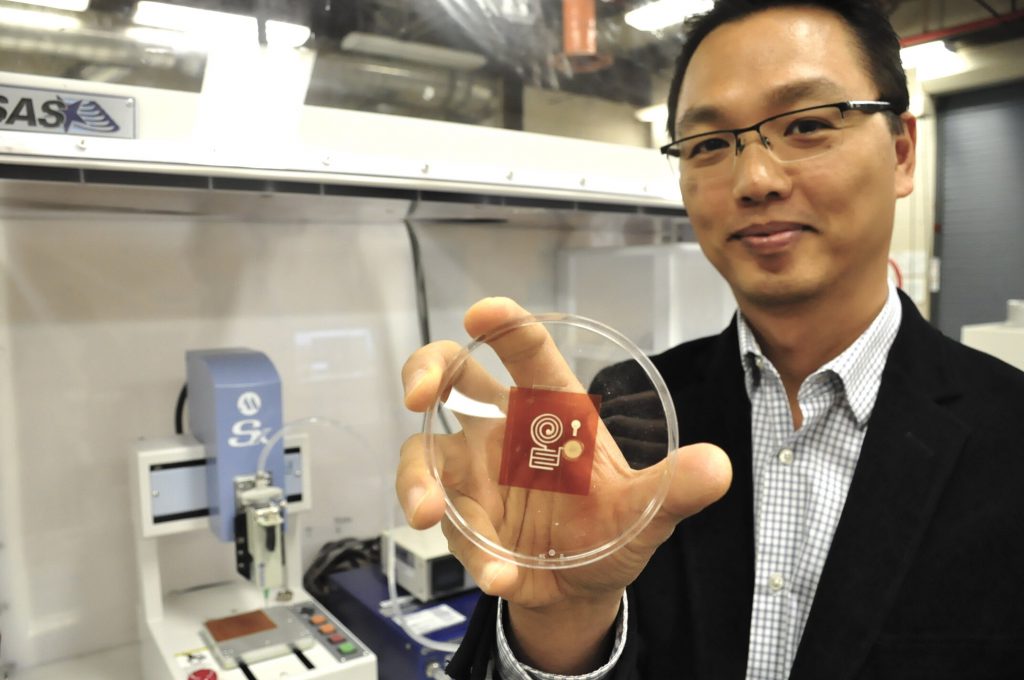Canadian and Swiss researchers have developed ‘green electronics’ and claim that computer chips of the future no longer have to include plastics.
Experts at Simon Fraser University in British Columbia and the Swiss Federal Laboratories for Materials Science discovered two years ago that the plastics and polymeric materials currently used in electronics can be replaced with wood-derived cellulose. As a result, they have developed an range of sustainable wireless Internet-of-Things sensors that can be disposed of ‘without contaminating the environment’.
‘This development will help to advance green electronics,’ says professor Woo Soo Kim, who runs the project at Simon Fraser University. ‘For example, the waste from printed circuit boards is a hazardous source of contamination. If we are able to change the plastics in PCBs to cellulose composite materials, recycling of metal components on the board could be collected in a much easier way.’

Additionally, 3D printing can give flexibility to add or embed functions onto 3D shapes or textiles, thus ‘creating greater functionality’. Kim adds: ‘Our eco-friendly 3-D printed cellulose sensors can wirelessly transmit data during their life and then can be disposed without concern for environmental contamination.’
At the start of this year, Kim was selected as a Brain Pool Fellow by the National Research Foundation of Korea.
Don't hesitate to contact us to share your input and ideas. Subscribe to the magazine or (free) newsletter.


